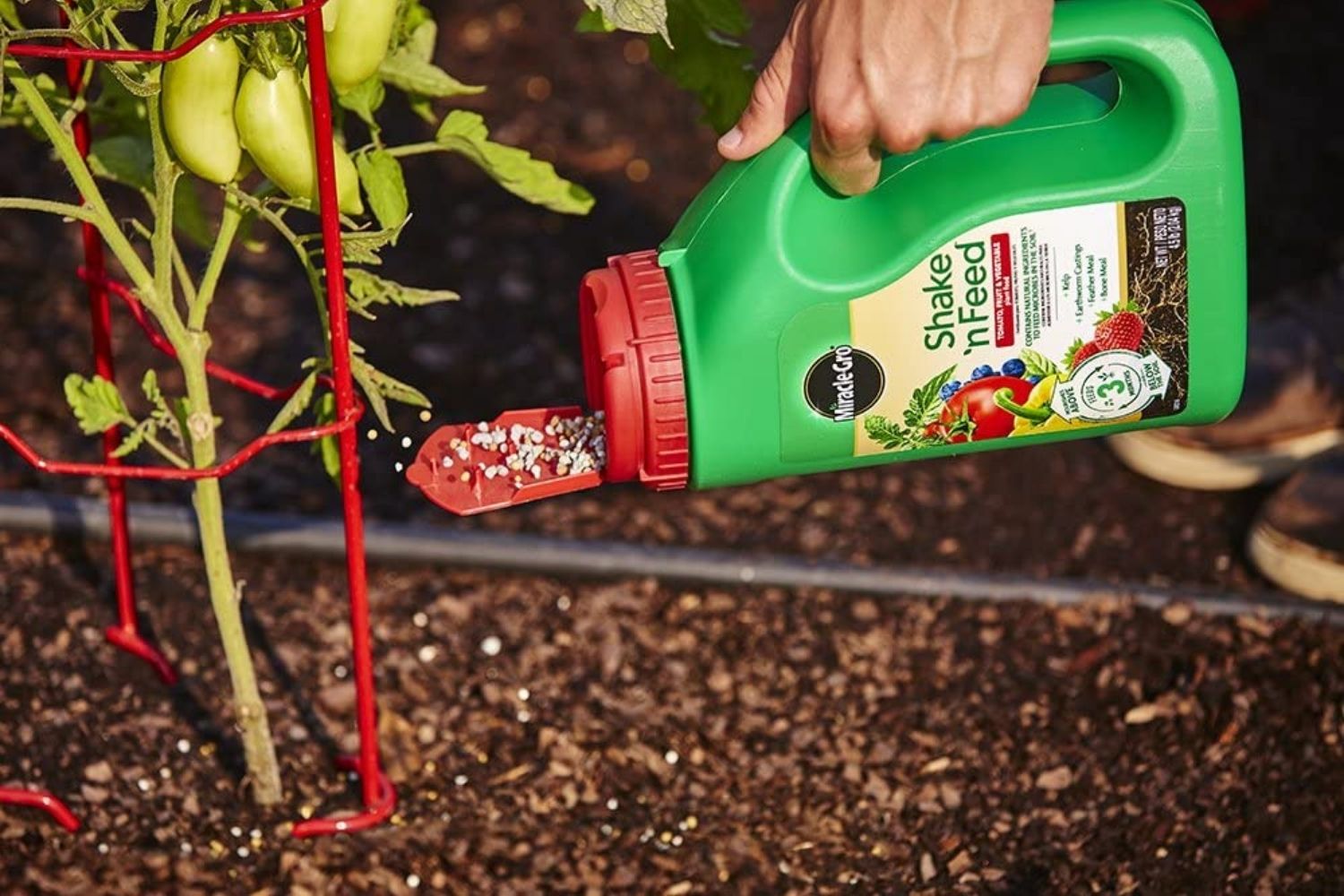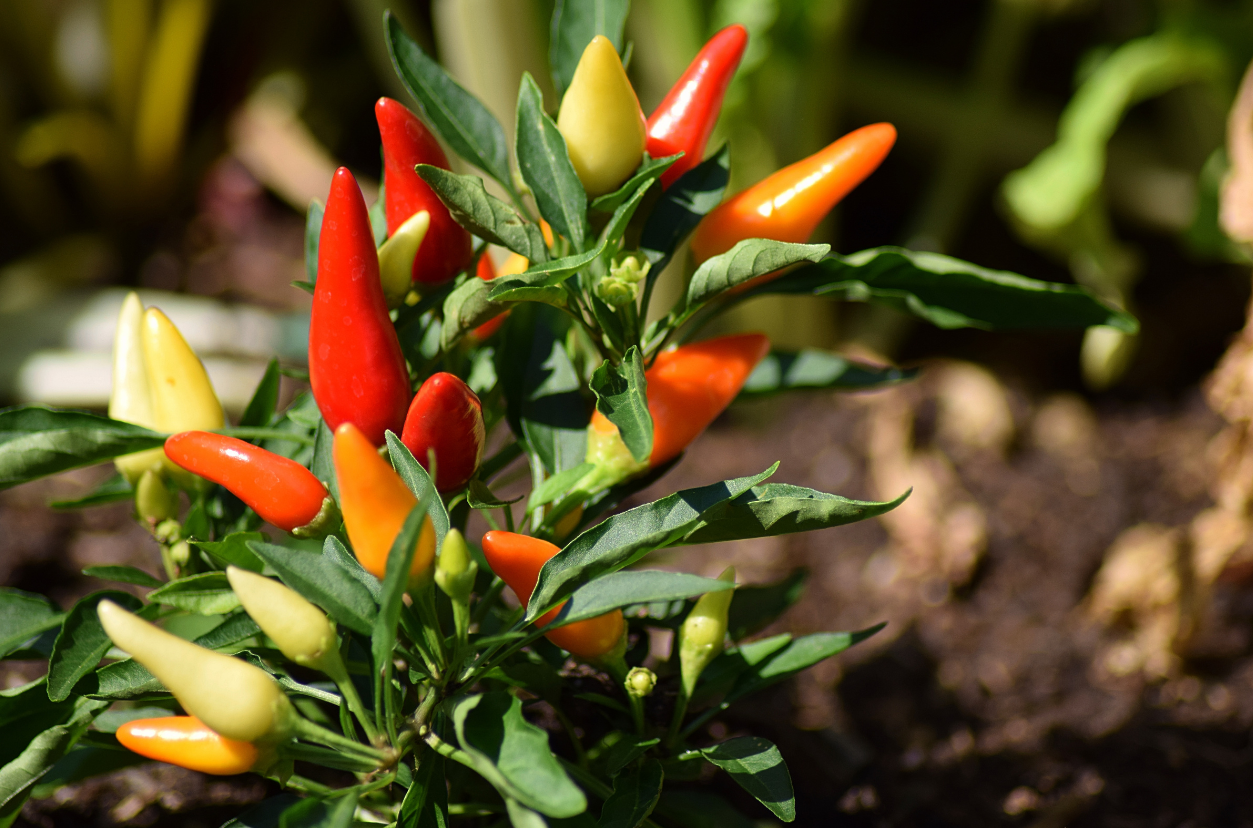Choosing the Best Fertilizers for Peppers: Specialist Recommendations
Choosing the Best Fertilizers for Peppers: Specialist Recommendations
Blog Article
Organic Vs. Synthetic Fertilizers: Which Is Best for Supporting Healthy Pepper Plants?
In the realm of nurturing healthy and balanced pepper plants, the choice in between artificial and organic fertilizers stands as an essential choice with significant effects. While both choices purpose to provide important nutrients to support plant development, the subtleties of their effect on the dirt, plant wellness, and the atmosphere trigger a dispute that mirrors throughout the gardening area. Recognizing the unique benefits and possible mistakes of each fertilizer type is vital for pepper cultivators looking for to optimize their returns while preserving a lasting and eco-conscious approach.
Advantages of Organic Plant Foods
Organic fertilizers use a sustainable and environmentally-friendly approach to beneficial pepper plants, providing vital nutrients without making use of artificial chemicals. These all-natural plant foods are stemmed from natural sources such as compost, manure, bone meal, and algae, advertising soil health and wellness and biodiversity. Unlike artificial fertilizers, organic choices release nutrients gradually, guaranteeing a balanced and stable supply for pepper plants to thrive.
One significant advantage of organic plant foods is their ability to improve soil structure and water retention. By enhancing dirt wellness, natural fertilizers advertise useful microbial task, which aids in nutrient uptake by pepper plants. Furthermore, natural plant foods reduce the risk of chemical run-off, shielding water sources from contamination and guarding the environment.
Moreover, organic fertilizers add to lasting dirt fertility by promoting the development of valuable dirt microorganisms. These organisms assist damage down raw material, launching nutrients in a type that is conveniently accessible to pepper plants. best fertilizers for peppers. By fostering a healthy and balanced soil ecological community, natural plant foods support sustainable pepper growing practices that benefit both plants and the atmosphere
Disadvantages of Synthetic Fertilizers
Synthetic plant foods, in comparison to their organic counterparts, present different disadvantages when utilized to nourish pepper plants, impacting both plant wellness and ecological sustainability. One significant disadvantage of artificial plant foods is their propensity to leach nutrients from the soil promptly. This quick leaching can cause nutrient inequalities in the dirt, causing plants to deal with shortages or toxicities. In addition, artificial fertilizers can harm advantageous dirt organisms, such as earthworms and beneficial bacteria, interrupting the dirt ecological community's equilibrium.
Furthermore, the overuse of synthetic fertilizers can add to water air pollution. Excess fertilizers not soaked up by plants can wash away into water bodies, resulting in eutrophication, where algae blooms diminish oxygen degrees in the water, damaging water life. Synthetic plant foods are commonly acquired from non-renewable sources, such as fossil fuels, adding to carbon emissions and ecological deterioration throughout their production.
Nutrient Absorption Contrast
Efficient nutrient absorption plays an important role in the general health and wellness and development of pepper plants. When comparing artificial and organic plant foods in terms of nutrient absorption, natural fertilizers have the benefit of providing an extra balanced and slow-release resource of nutrients (best fertilizers for peppers). Organic plant foods contain a selection of macro and trace elements that are not just useful for the plants however also advertise healthy and balanced dirt microbial task, which helps in nutrient uptake. On the other hand, synthetic fertilizers typically supply a quick release of nutrients, which can cause seeping and drainage, leading to lower nutrient absorption rates by the plants.
Furthermore, natural fertilizers enhance soil structure and water retention capacity, allowing pepper plants to accessibility nutrients a lot more successfully. This improved soil high quality promotes root development, allowing far better nutrient absorption. Artificial fertilizers, although initially improving plant growth because of their high nutrient concentrations, might prevent lasting nutrient absorption by degrading soil wellness gradually.
Ecological Effect Factors To Consider

On the various other hand, synthetic plant foods, although usually even more quickly offered and concentrated to plants, can have damaging effects on the setting otherwise used appropriately (best fertilizers for peppers). Their manufacturing calls for high energy inputs, leading to greenhouse gas discharges and adding to environment adjustment. Additionally, the overflow of excess artificial plant foods can pollute water sources, bring about eutrophication and harming water ecosystems.
Ideal Plant Food Practices for Peppers
When feeding pepper plants, enhancing nutrient uptake and lessening environmental influence are crucial considerations. To accomplish this, it is necessary to adhere to ideal plant food techniques tailored to the details needs of pepper plants. One vital method is to execute a soil examination prior to applying any plant foods. This test can establish the pH degree of the dirt and identify any type of nutrient deficiencies, leading you in choosing the most suitable plant food formulation.
One more visit homepage vital technique is to fertilize pepper plants at the best time. Commonly, peppers gain from getting fertilizer at planting and after that once again when they start to flower. Over-fertilizing can lead to nutrient discrepancies and harm the plants, so it is crucial to follow suggested application prices.
Furthermore, selecting a well balanced plant food with an NPK ratio that fits pepper plants' needs is fundamental. Organic fertilizers, such as compost or manure, can be outstanding selections as they launch nutrients gradually and improve dirt structure in time. However, synthetic fertilizers can provide a quick nutrient increase when needed. Eventually, incorporating artificial and natural fertilizers deliberately can assist nurture healthy pepper plants while lessening ecological impact.
Final Thought

Organic fertilizers use a lasting and environmentally-friendly approach to nourishing pepper plants, offering essential nutrients without the usage of artificial chemicals. Unlike synthetic plant foods, natural options release nutrients gradually, making sure a well article balanced and constant supply for pepper plants to flourish.
Synthetic plant foods, in contrast to their organic equivalents, position different drawbacks when made use of to nurture pepper plants, affecting both plant wellness and environmental sustainability. When comparing organic and artificial plant foods in terms of nutrient absorption, natural plant foods have the advantage of giving an extra balanced and slow-release source of nutrients.Additionally, natural fertilizers enhance dirt framework and water retention ability, permitting pepper plants to accessibility nutrients more efficiently.
Report this page